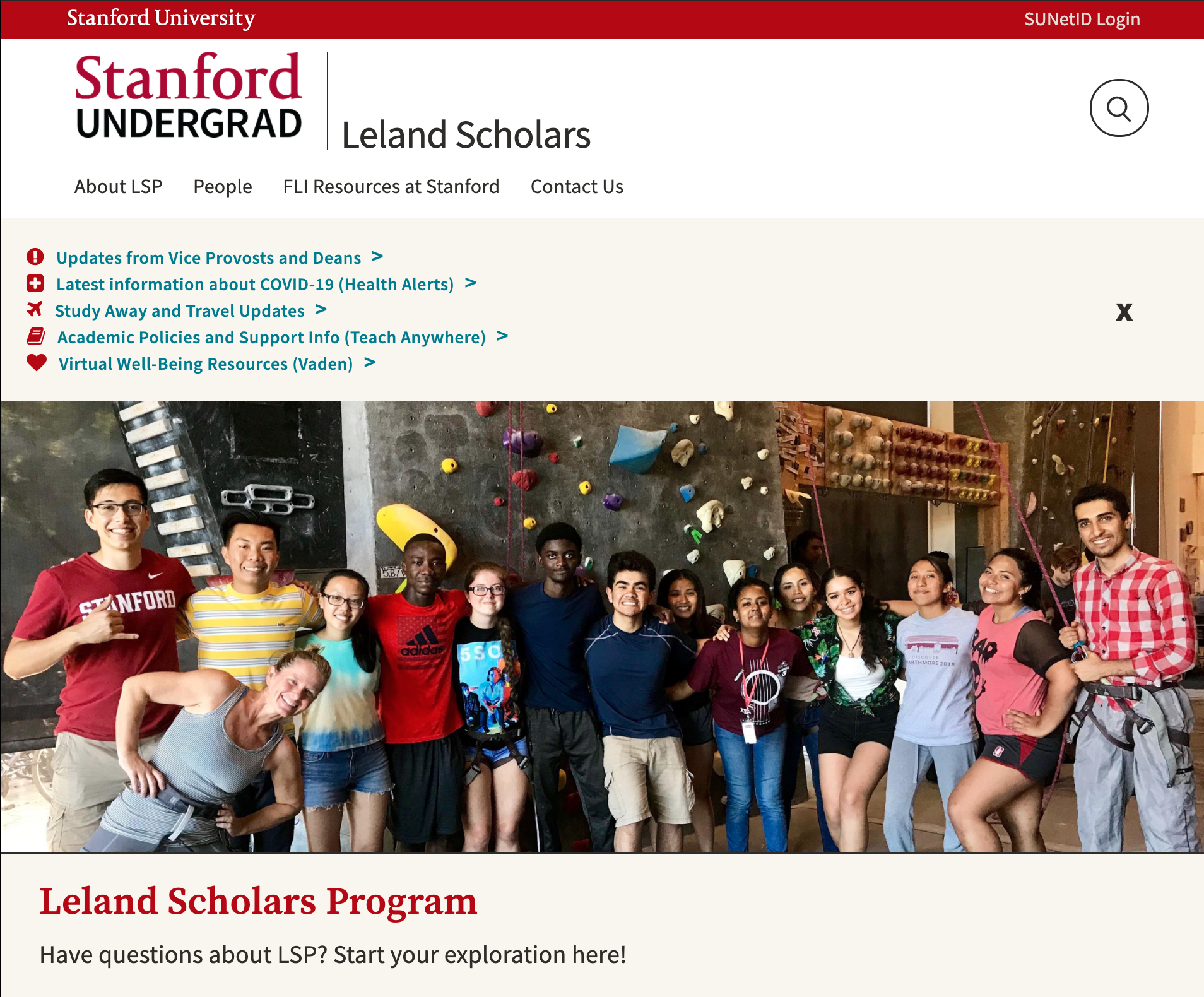The COVID-19 pandemic has sparked countless changes and adaptations in nearly all aspects of the world, including education and related programs, and summer residential programs at Stanford are no exception.
Leland Scholars Program (LSP), aimed at aiding first generation, under-resourced and low-income students in making the transition to college, announced it would abandon its traditional four-week residential programming usually held in August for a virtual format to limit possible virus transmission. While the transition to a virtual format addresses the need to minimize travel, close interactions with non-household members and the number of students present on campus at once, it disposes of program characteristics that many, including former LSP scholar Richard Phan ’23, consider central to its impact.
Phan looks back on his experience at LSP as a very memorable one.
“As a FLI student, I felt very anxious about how I would integrate myself into life at Stanford,” said Phan. “However, the LSP Program really gave me a sense of community, support and security.”
“LSP gave me a glimpse of what Stanford is really like, and it really gave me readiness to adapt my life at Stanford,” he added.
Phan believes that a crucial part of the overall experience is the “intimacy shared during the program” through its face-to-face, living and learning structure, and he doesn’t believe that the “same intimacy can be replicated virtually.”
Aside from allowing incoming frosh to adjust to the Stanford learning and living environments prior to the regular school year when over 7,000 undergraduates will flood the campus, LSP connects scholars with support resources that extend beyond the conclusion of the program.
“During the academic year, Leland Scholars have access to additional advising and first-year seminars that sustain the community and reinforce the skills and strategies acquired during the program,” said LSP Administrator Joy Robinson.
In the past, LSP scholars have attended in-person, on-campus classes or workshops that mimic the traditional style of Stanford classes to help familiarize participants with the logistics of a university-level course before the official academic year begins. This year, students will have online classes or workshops, and in the evenings there will be remote social events, check-ins and opportunities to virtually interact with campus partners, build academic skills and learn about other resources Stanford offers.
As the program shifts to a virtual space, scholars also miss out on a style of residential living similar to that which they would experience during their first undergraduate year on campus. Through both “structured and unstructured time,” students would typically develop the skills necessary to live in community with one another and form lasting bonds, according to Robinson.
While Robinson acknowledges that missing residential nature will ultimately create a unique program experience relative to past years, she knows the students will benefit from the program as they build relationships with each other, their professors and the LSP staff.
“[LSP] staff is working diligently to ensure that students have an amazing experience this summer,” Robinson added.
At this time, details for the program’s two traditional academic year seminars, which occur during the fall and winter quarters, are unknown. Ideally, the LSP program hopes to be able to convene in person in the fall, when the incoming frosh will be permitted to live on campus in accordance with a University announcement from June 29 that detailed a quarter-by-quarter plan for student housing during the 2020-21 academic year.
Robinson ensures that program staff “are committed to ensuring students are socially distanced in addition to taking other precautions to protect everyone’s health” in any manner of in-person gathering.
Contact Yuto Kimura at yuto.sf ‘at’ gmail.com.
